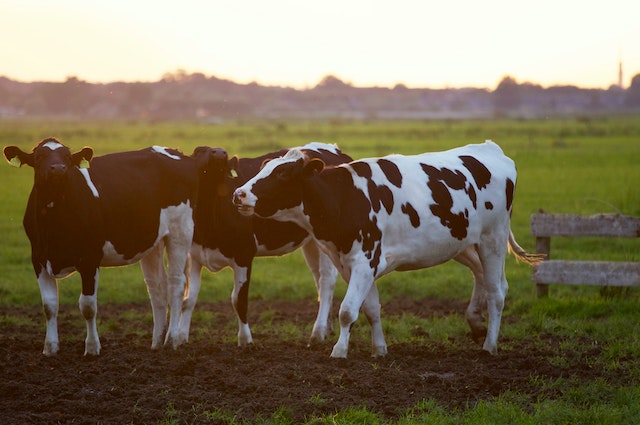Veganism is a lifestyle which forbids all forms of animal products such as food and products tested on them; in its place are plant-based oils, soaps and cosmetics that do not test on animals.
By going vegan, we can significantly lessen our environmental impact on Earth. Studies show that eliminating meat and dairy from our diets can significantly lower greenhouse gas emissions while freeing up land used for animal agriculture – which contributes to habitat destruction by freeing it up for wildlife use.
Health
Many vegans choose their lifestyle for health reasons, as a plant-based diet has been linked with lower body weights, blood sugar levels, gut microbiome health and reduced risks of heart disease and cancer. Furthermore, veganism eliminates unhealthy trans fats and saturated fats.
Veganism also reduces our environmental footprint. Animal agriculture contributes significantly to global warming by emitting greenhouse gases and polluting land and water sources, as well as deforestation due to clearing away wild areas for feed crops like soy or maize production. A vegan diet can help combat this by decreasing our demand for livestock meat products.
Animal agriculture consumes vast quantities of freshwater resources worldwide to raise and feed animals, but going vegan could drastically cut this usage down by eliminating meat and dairy consumption which require far more water than plants do.
Animal agriculture pollutes soils and waterways with antibiotics, hormones, and waste that threaten biodiversity while potentially harming human health. A vegan diet eliminates animal agriculture’s environmental pollution as well as its associated negative health impacts; therefore benefitting both planet earth and our individual bodies alike.
Veganism offers another effective means to lower our carbon footprint by emphasizing locally sourced produce over foods brought in from faraway places. Environmental vegans may further limit plastic packaging use or strive to purchase local produce to further cut transportation emissions. It is wise, however, to consult a nutritionist or doctor prior to pursuing veganism to ensure you’re receiving enough vitamins and minerals as a vegan and are protected from potential nutritional deficiencies.
Environment

Veganism entails abstaining from all products that involve the exploitation of living creatures, such as meat, fish, eggs and dairy products. But its scope goes far beyond diet; veganism also strives to create an entirely animal-free world in clothing, entertainment and housing materials – such as cars and glue used in books containing animal byproducts. In our current society however, this goal cannot be fully reached; everyday items like cars contain animal byproducts as do some building materials used daily as well as glues containing animal byproducts!
With extremely healthy products like Huel, veganism has the power to drastically cut greenhouse gas emissions that contribute to climate change, according to multiple studies. A plant-based diet has proven most sustainable for both humans and planet Earth alike.
Rearing livestock requires immense amounts of energy. Land must be cleared, fertilizers applied and electricity consumed for heating and running machinery. Animal waste also must be stored safely to prevent pollution of water sources – some rivers and lakes have even become toxic due to hormones, antibiotics and animal waste being present in them.
At the same time, agriculture has decimated large areas of wilderness to make way for grazing pastures and factory farms, leaving species such as badgers, hares and foxes on the verge of extinction due to livestock removal for livestock farming or hunting activities. A vegan diet would help conserve wild spaces while aiding species recover by eliminating their need to be raised or hunted for food; additionally it eliminates fish farming practices which pollute oceans with antibiotics and hormones which travel through currents to other areas where disease and pollution impact marine life lives.
Animal Welfare
Veganism is the single greatest way you can fight animal cruelty, from your home-sharing dog and chickens living in windowless sheds to fish being plucked from the oceans – from untreated illnesses, injuries and rough transportation, all the way up to slaughterhouse deaths where many victims experience violent, painful deaths. Vegans stand against animal exploitation on every front. Millions are raised on factory farms so we can eat meat and dairy products; in addition, millions more die due to lack of care from unregulated transport or untreated illnesses, injuries and rough transport – even those that make it through to slaughterhouse deaths often suffer an ugly death that leads to bloodshed when confronting harsh slaughterhouse workers at each turn – veganism is one way of making our voices heard against animal exploitation!
Veganism’s impact on animal welfare is immense and far-reaching. Philosophers such as Pythagoras and Peter Singer (author of Animal Liberation) have long held that humans do not have the right to exploit animals for personal gain, while multiple religious traditions including Jainism, Hinduism and Buddhism also contain vegetarian or vegan elements in their practices.
Wildlife in the UK is facing major threats: species like badgers and foxes are being forced from their traditional habitat, wild birds are losing homes, and invasive plants are killing off native trees – all to make room for livestock and feed crops. Being vegan not only stops this exploitation – it has the power to reverse it!
Veganism also reduces pollution caused by modern farming. Herbicides and pesticides used on factory farms pollute rivers, lakes and streams. Cattle overgrazing pastures leads to erosion which degrades water quality – not to mention impactful fishing nets that catch and kill dolphins, whales and turtles; this can all be avoided simply by going vegan!
Animal Rights
No matter if they share your bed or simply visit, all animals are sentient beings who deserve to live free from pain and suffering. By eliminating meat consumption, vegans can help decrease suffering inflicted upon billions of nonhuman animals worldwide each year.
Eating plant-based foods helps preserve natural habitats and wildlife. Animal agriculture is one of the main drivers of habitat loss in tropical countries where most meat is produced; to raise livestock for meat production, farmers must clear and convert wild habitats to farmland for feed, often at great expense to native plants and animals essential to local ecosystems like rainforests, coral reefs, and wetlands.
Vegetarian and vegan individuals typically avoid processed or fast food that contains ingredients derived from animal sources, which helps limit hormones, antibiotics, and other pollutants found in waterways, rivers, and lakes. This is especially important given that industrial pollution has led to climate change which in turn impacts human health.
Though the concept of vegetarianism and its practices have existed since 500 BCE in Greece and India, modern veganism began with woodworker Donald Watson in 1944. Although its roots go back further, modern veganism gained more momentum during its rise during the 60s. Now more popular than ever, its history runs deep.
Ethics
Some individuals choose veganism out of an ethical conviction. Breeding, caging and slaughtering animals for food, clothing and cosmetic products causes unnecessary distress to animals; as a result, for these people avoiding meat is considered morally imperative.
Vegans tend to be very cognizant of the environmental and social justice impacts of animal agriculture, including how it contributes to diet-related illness, food insecurity, climate change and worker abuse. Many also choose products made locally from sustainable materials in order to further decrease their ecological footprint. Furthermore, some vegans are mindful that their eating habits may negatively impact culture by stigmatizing indigenous communities that consume wild meats.
Additionally, cultivation of soy, corn and wheat (the primary components in many processed meat alternatives) can have devastating impacts on world biodiversity, contributing to soil erosion and the habitat destruction of native species. To minimize such threats to biodiversity and native species, purchasing environmentally sustainable plant-based foods like organic locally produced produce or beans may help.
Veganism can be more eco-friendly than its omnivorous counterpart, producing far fewer greenhouse gases. Carbon emissions created from raising livestock and transporting their products across the country are much higher than those created from eating fruits, vegetables and other plant sources that don’t contain animal byproducts.



